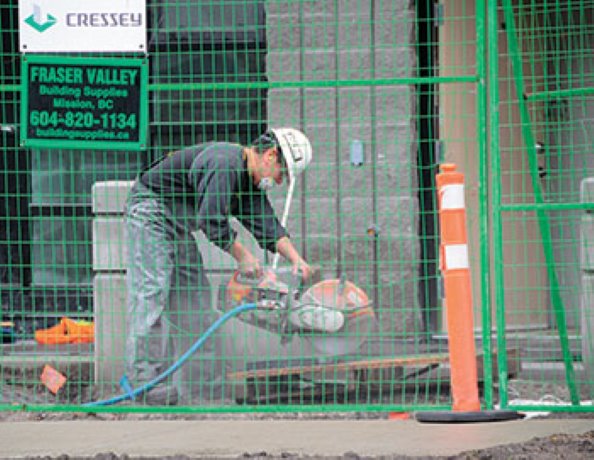The 2013 Hays Compensation, Benefits, Recruitment and Retention Guide is out and for construction the news is relatively upbeat.
The 2013 Hays Compensation, Benefits, Recruitment and Retention Guide is out and for construction the news is relatively upbeat.
Hays Canada predicts that construction activity will grow in Canada and that close to half of employers plan to add more staff this year.
The minor downside is that 45 per cent of employers plan to keep staff levels the same as in 2012.
Hays is a United Kingdom-headquartered international recruiting agency.
Playing into recruitment, is all of the volatility associated with natural resource development.
“What happens to wages in Western Canada over the next 10 years is linked to the resource sector,” said Jim Fearon, Hays Recruiting’s regional director for Western Canada.
“Western Canada is buoyed heavily by oil and gas and mining.”
From his Calgary office, he noted that the market is still sensitive to global economics.
Still, Hays predict that salaries within the construction industry over the next 20 years will continue to rise thanks to inflation, with Alberta showing the biggest hikes.
The increases are across the board, with workers in almost every sector set to get fatter pay cheques.
The only area where salaries will drop is in residential lowrise construction in rural Canada, a small segment of the industry.
Hays also found that in 2013, there won’t be enough junior-to-mid-level management staff.
Also needed are senior estimators with quantity surveying qualifications, cost and project management consultants with strong technical skills for highrise construction and superintendents with experience in highrise and health care projects.
In 2010, a senior estimator earned about $100,000.
In 2013, a senior estimator’s salary is projected to be $125,000 to $130,000.
Hays also reaffirmed the prevailing outlook that staff shortages are due to older and/or retiring employees.
Hays noted that staff shortages have also been caused by a lack of people entering the construction industry in the last decade, more “niche experience” being required for specific projects, a shortage of technological skills and skilled candidates being lured by high salaries in the oil and gas industries.
“The real concern is a lack of people with 10 to 20 years of experience. There’s a real hole in the talent pool. In the late ‘80s and ‘90s, there was a similar situation,” said Fearon.
Philip Hochstein agreed.
“We’re moving from an era of labour surplus to labour shortage,” said the president of the Independent Contractors and Businesses Association (ICBA), pointing out that there’s more work now than there was in the boom years of 2005-06.
“In the past, it was a buyer’s market. Now it’s a seller’s market.”
Still, Hochstein noted that shortages are geographically dictated, with Northern B.C. and Alberta as areas where finding staff is difficult.
He added Vancouver Island to the list, where construction of two hospitals starts this year, meaning workers will be drawn to Campbell River and the Comox Valley.
To attract staff, companies are having to become employers of choice, which not only means offering good wages and benefits, but also career development.
It also means strong employer branding, said Fearon.
In the boom years of 2003-08, employers usually hooked employees with high wages.
It’s different today, Fearon said, with more of a desire for strong pension plans, bonuses/profit-sharing or career development.
In fact, 33 per cent of employer respondents to a Hays’ survey said they’re adding pension/RRSP matching to their benefits packages.
Twenty per cent are adding professional development choices.
Additionally, 40 per cent of employers say offerings of career growth are a big attractant when recruiting employees, typically younger workers.
“There’s a far greater interest in career progression. No one likes to stay still,” Fearon said.
Succession plans are also on employees’ minds.
“The younger generation are very aware of these things,” he said.
Hochstein pointed out that the ICBA offers technical and management training programs that are usually full.
“Career development has always been a part of Canada’s construction industry culture,” he said.
Rapid fire regulatory and technical changes, as well as a more savvy workforce mean that employers have to meet employees’ needs head-on or risk losing them.
“Back in the ‘60s and ‘70s, the louder the boss yelled, the harder they worked,” Hochstein said.
That’s not the case anymore.
So, while there are areas where skills shortages already exist, Hochstein pointed out that any job in construction is good.
There’s lots of mobility and advancement can be rapid.
“Construction is one of the few industries where you can start as a labourer and in a few years, own your own company,” he said.











Recent Comments
comments for this post are closed